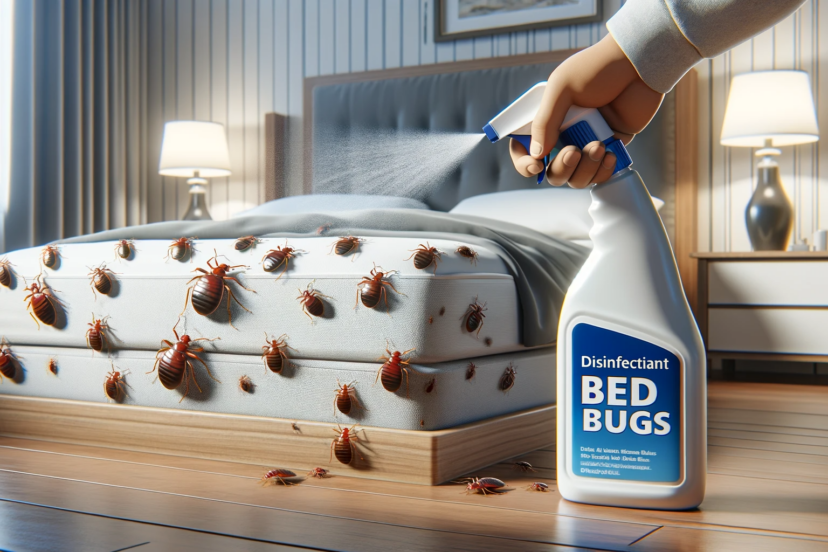Does Disinfectant Kill Bed Bugs?
Understanding Bed Bugs
Bed bugs, notorious for their secretive nature, thrive in the hidden corners of our homes. These tiny, reddish-brown insects feed on human blood, usually at night, making them a dreaded nocturnal menace. Understanding their behavior, life cycle, and resilience is crucial in developing effective strategies to combat them.
- Characteristics: Small, wingless insects feeding on human blood.
- Habitat: Prefer warm environments, typically found in mattresses, furniture, and clothing.
- Reproduction: Known for their fast reproductive rate, exacerbating infestation issues.
- Kills Bed Bugs and Bed Bug Eggs
- Kills Fleas and Dust Mites
- Non-staining, Leaves No Odor
Disinfectant Sprays: A Potential Weapon?
Disinfectant sprays, commonly found in households, are known for killing bacteria and viruses, but their effectiveness against
You might be interested in: Pyrethroids for Bed Bugs
1. The Role of Disinfectants
- Disinfectants are designed to kill germs and bacteria.
- They contain chemicals that can be toxic to insects.
- Not all disinfectants are equally effective against
bed bugs .
2. The Chemical Approach
- Ingredients: Most disinfectants contain chemicals like ethanol or phenol.
- Direct Contact: Effective in killing
bed bugs upon direct contact. - Variability: The efficacy can vary based on the brand and formulation.
3. Case Study: Lysol Disinfectant Spray
Lysol, a popular disinfectant spray, has been considered for bed bug treatment due to its strong antibacterial properties.
- Immediate Impact: Can kill
bed bugs when sprayed directly. - Limitations: Lysol’s effect is limited to the insects it directly contacts.
- Ineffectiveness on Eggs: Does not effectively eliminate bed bug eggs or larvae.
- Sanitizing and Antibacterial Spray
- For Disinfecting and Deodorizing
- Proven to kill 99.9% of viruses and bacteria
Challenges in Using Disinfectants for Bed Bugs
While disinfectant sprays promise to eliminate germs, using them to tackle
1. Inadequacy for Infestations
Reach: Disinfectants cannot penetrate into the deep hiding places of
Temporary Solution:
Ineffective on Eggs: Fails to address the root of infestation – the eggs.
2. Health and Safety Risks
Toxicity: Prolonged exposure to disinfectants can pose health risks.
Environmental Concerns: Overuse can lead to harmful residues.
Risk to Non-Targeted Species: Potential danger to pets and children in the household.
- Kills Bed Bugs and Fleas
- Inhibits Reinfestation Up to 7 Months
- Use indoors in enclosed spaces
- Non Toxic
Effective Alternatives to Disinfectants
With the limited effectiveness of disinfectants on
1. Professional Extermination Services
- Expertise: Professionals use targeted strategies for comprehensive elimination.
- Advanced Methods: Techniques like heat treatment effectively address all life stages.
- Safety and Efficiency: Professionals ensure safe and efficient use of chemicals.
2. Integrated Pest Management (IPM)
- Holistic Approach: Combines various strategies, including chemical and physical methods.
- Preventive Measures: Focuses on preventing infestations through regular inspections and cleanliness.
- Sustainable Solutions: Aims for long-term control and minimal environmental impa
Conclusion: A Multi-Faceted Strategy Is Key
In conclusion, while disinfectants like Lysol can kill
You might be interested in: Chlorfenapyr Bed Bugs







